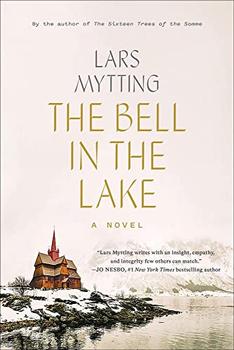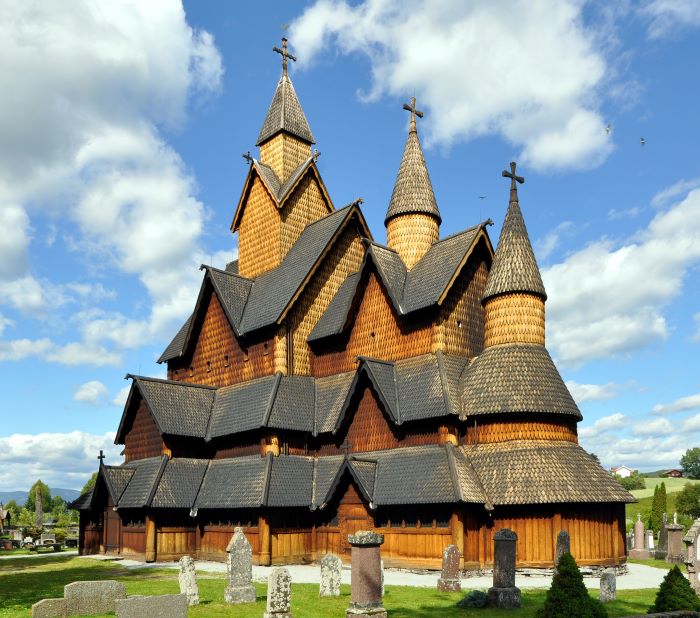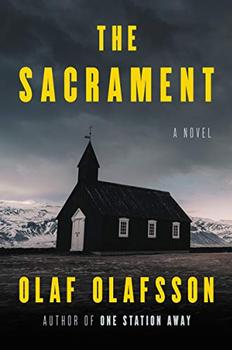Summary | Excerpt | Reading Guide | Discuss | Reviews | Beyond the book | Read-Alikes | Genres & Themes | Author Bio

Sister Bells Trilogy #1
by Lars MyttingThe engrossing epic novel - a #1 bestseller in Norway - of a young woman whose fate plays out against her village's mystical church bells.
As long as people could remember, the stave church's bells had rung over the isolated village of Butangen, Norway. Cast in memory of conjoined twins, the bells are said to ring on their own in times of danger. In 1879, young pastor Kai Schweigaard moves to the village, where young Astrid Hekne yearns for a modern life. She sees a way out on the arm of the new pastor, who needs a tie to the community to cull favor for his plan for the old stave church, with its pagan deity effigies and supernatural bells. When the pastor makes a deal that brings an outsider, a sophisticated German architect, into their world, the village and Astrid are caught between past and future, as dark forces come into play.
Lars Mytting, bestselling author of Norwegian Wood, brings his deep knowledge of history, carpentry, fishing, and stave churches to this compelling historical novel, an international bestseller sold in 12 countries. With its broad-canvas narrative about the intersection of religion, superstition, and duty, The Bell in the Lake is an irresistible story of ancient times and modern challenges, by a powerful international voice.
Mytting constructs his novel around compelling dichotomies. Cutting-edge medical procedures versus limited village practices, Christianity versus superstition and male action versus female passivity are pairs of concepts the author gently dissects and subverts. As much as I enjoyed the book's themes, unique location and blend of genres, I did feel that the central love triangle led the plot into rather melodramatic territory. Still, in atmosphere, The Bell in the Lake is reminiscent of Danish author Carsten Jensen's We, the Drowned, another enthralling epic that combines history and legend in an inviting Scandinavian setting and one of my favorite novels...continued
Full Review
 (723 words)
(723 words)
(Reviewed by Rebecca Foster).
 It's no secret that Lars Mytting loves trees. He wrote a novel titled The Sixteen Trees of the Somme (2017), and is known for his international bestseller Norwegian Wood (2015), a nonfiction guide to sources of firewood that gives instructions on how to chop, stack and cure wood for burning. With The Bell in the Lake, he continues with the subject of wood as material by delving into Norway's architectural history, specifically its famous stave churches.
It's no secret that Lars Mytting loves trees. He wrote a novel titled The Sixteen Trees of the Somme (2017), and is known for his international bestseller Norwegian Wood (2015), a nonfiction guide to sources of firewood that gives instructions on how to chop, stack and cure wood for burning. With The Bell in the Lake, he continues with the subject of wood as material by delving into Norway's architectural history, specifically its famous stave churches.
While stone cathedrals were constructed elsewhere in the Middle Ages, in parts of northern Europe wood was the building material of choice. More than 1,000 stave churches were assembled in Norway, mostly in the 12th to 14th centuries. The name refers to the type of timber framing used...

If you liked The Bell in the Lake, try these:

by Kiran Millwood Hargrave
Published 2021
After the men in an Arctic Norwegian town are wiped out, the women must survive a sinister threat in this "perfectly told" 1600s parable of "a world gone mad" (Adriana Trigiani).

by Olaf Olafsson
Published 2020
The haunting, vivid story of a nun whose past returns to her in unexpected ways, all while investigating a mysterious death and a series of harrowing abuse claims.